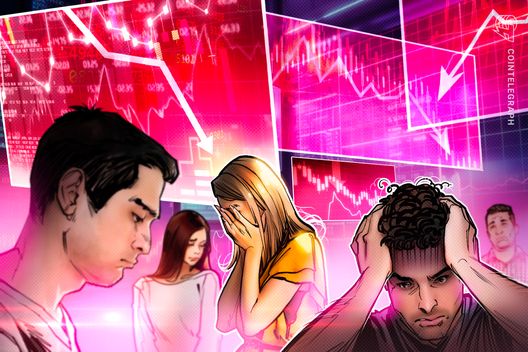The cryptocurrency space continues to intersect with traditional markets, showcasing a fascinating dynamic in predictive trading platforms. A recent development highlights how traders on platforms like Polymarket and Kalshi remained steadfast in their predictions regarding the Dutch elections, ignoring recent polling data that suggested a shift in favor of the D66 party. Despite late polls indicating a surge for D66, traders continued to back Geert Wilders’ People’s Party for Freedom and Democracy (PVV), treating it as a clear frontrunner.
However, as the dust settled on election day, exit polls revealed a different narrative, leading to a significant market correction. This sudden change resulted in a staggering loss for those who banked on the initial predictions, with millions in bets either misplaced or overly optimistic about the PVV’s chances. Such volatility reflects the inherently risky nature of predictive markets, where the latest data can alter the odds in seconds.
“Market reactions often reveal the gap between expectation and reality, particularly in the unpredictable world of politics,” an analyst noted, underscoring the importance of adapting to real-time information.
This event serves as a vital reminder of how crucial it is for traders to remain vigilant and responsive to evolving information landscapes, especially in markets that blend traditional and digital assets. As the relationship between cryptocurrency trading and political forecasting continues to evolve, the impact of real-time data will likely play an increasingly central role in shaping trader strategies.
Impact of Polling Trends on Trading Markets
Key points regarding the recent developments in Polymarket and Kalshi trading platforms:
- Polling Trends Ignored: Traders overlooked late polls indicating a rise in support for D66.
- Geert Wilders’ PVV Considered a Certainty: Prior to exit polls, the PVV was priced as a guaranteed winner by traders.
- Exit Polls Influence Pricing: Exit polls led to significant changes in market pricing, highlighting the volatility of political betting.
- Financial Impact: Millions in bets were erased following the exit polls, indicating potential financial losses for traders.
Implications for Traders: Understanding polling dynamics and market reactions can greatly impact financial decisions and risk management in political betting.
Traders React to Poll Shifts: A Closer Look at Polymarket and Kalshi
The recent developments in the political betting markets surrounding the Netherlands’ elections paint a vivid picture of how trader sentiment can be influenced by late-stage polling data. Both Polymarket and Kalshi users appeared to dismiss late polls indicating that the D66 party was gaining traction. Instead, many held onto their bets favoring Geert Wilders’ PVV as an almost certain winner. This highlighted a significant competitive advantage for those who kept a close eye on real-time data and market sentiment.
This scenario underscores a major disadvantage in the trading strategies employed by some participants. Ignoring critical late polling trends not only led to inflated positions but also resulted in vast monetary losses after the exit polls prompted a rapid market repricing. Traders who reacted swiftly to shifting information could capitalize on the situation, creating substantial financial gains for themselves while leaving others to significantly reduce their stakes—or worse, abandon their positions at a loss.
The implications of this market behavior extend beyond individual traders; it could signal potential problems for platforms like Polymarket and Kalshi. Users who favor stable, predictable odds may become wary of participating when they witness such drastic shifts in market sentiment. Conversely, traders looking for volatility and the opportunity to leverage shifts could find these dynamics highly beneficial.
This scenario primarily impacts both casual and professional traders. While inexperienced users might feel overwhelmed and hesitant after witnessing such volatility, seasoned traders may thrive on the unpredictability, taking advantage of mispriced bets when critical news breaks. In a world where information is currency, those who adapt quickly and utilize reliable data sources will emerge as the competitive frontrunners in the ever-evolving landscape of political betting.














